Here’s the full interview with our CEO Alexandre Allegue, recently showcased on Urban Vine
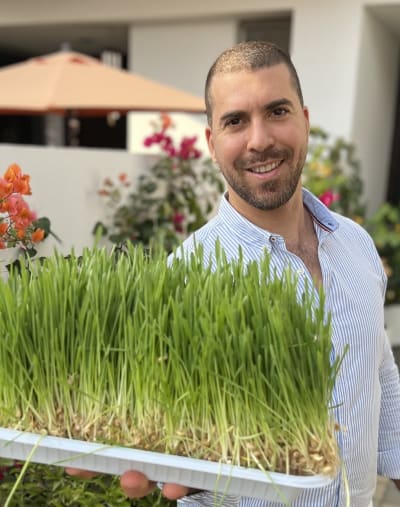
What is the origin story of Graze-it
The inception of our venture, Graze-it, took root upon understanding the restrictions placed on water-intensive crops in arid regions like Saudi Arabia and the UAE, which are pivotal for animal husbandry, such as alfalfa hay. These crops are essential components of livestock nutrition, necessitating their complete importation. The tumult caused by the COVID-19 pandemic disrupted shipping and strained supply chains, inflating the cost of imported feed.
The conflict in Ukraine further tightened these supplies, leading to a critical deficit that posed a significant threat to our regional food security. Addressing this crisis, Graze-it emerged with a clear objective: to devise an innovative method to cultivate these vital crops locally in a manner that is both cost-effective and sustainable, potentially revolutionizing the agricultural paradigm.
Based in Dubai, Graze-it pioneers the establishment and management of hydroponic vertical farms. We specialize in producing high-quality fodder and offer it to livestock owners through a subscription service. This model ensures consistent quality, reliable quantity, and competitive pricing, thereby contributing substantially to solving the pressing food security challenge in the region.
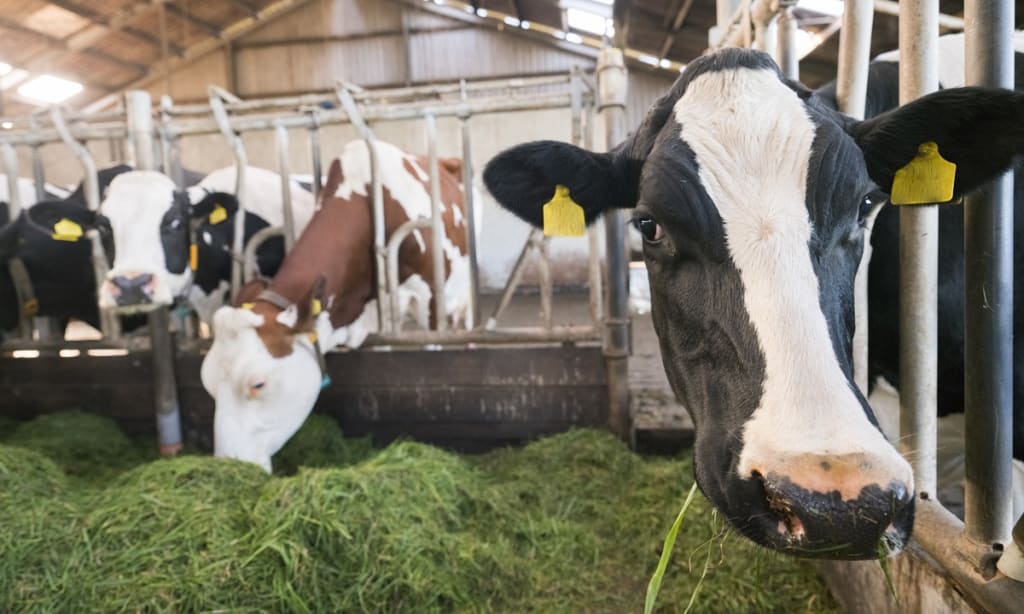
What are some of the biggest challenges facing Graze-it in the future?
The paramount challenge we’ve encountered is convincing commercial cattle owners of the nutritional benefits of our product. Our hydroponic fodder is designed to replace a significant portion—ranging from 20% to 60%—of the cattle’s variable feed diet. Determining the precise rate of inclusion for our product necessitates a thorough understanding of each customer’s existing diet profile. However, the precise nutritional formulas used by our clients, who are major players in the dairy and beef industries, are closely guarded as trade secrets and are not disclosed readily. This lack of transparency has historically been a formidable barrier, hindering many hydroponic fodder enterprises from expanding.
To overcome our second major challenge, maintaining consistent production as we scale, we have formed a strategic alliance with the preeminent hydroponic fodder producer in the United States. This collaboration ensures that we can deliver our product at scale without compromising on quality.
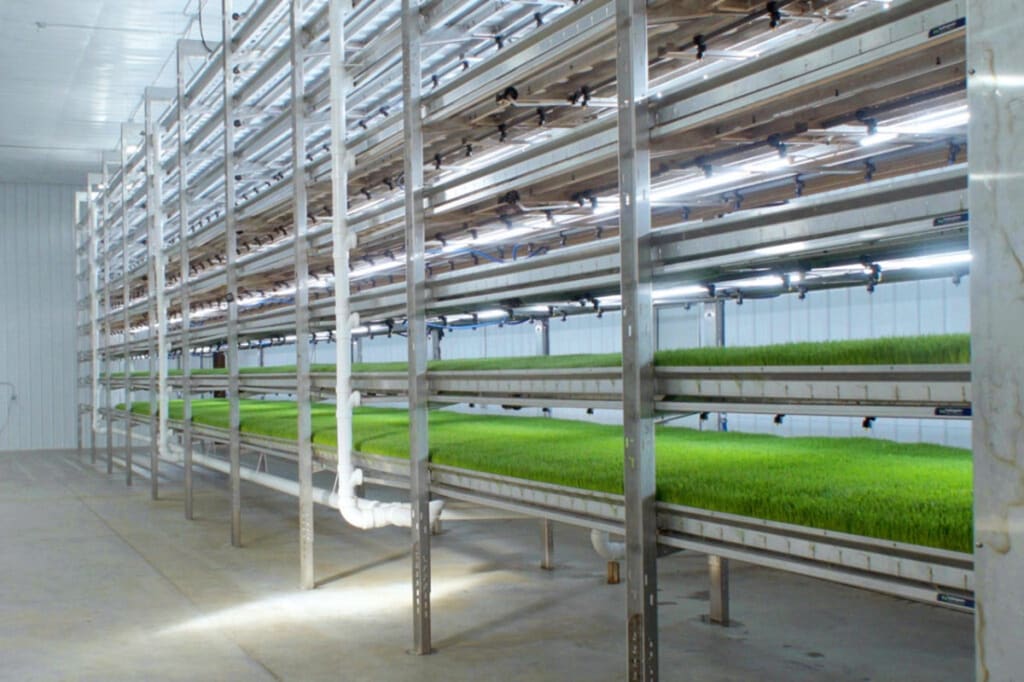
What is unique about Graze-it compared to competitors?
Our enterprise stands out in the marketplace for several compelling reasons. Foremost, we are distinguished as the sole entity to have secured a substantial subscription contract with the global dairy conglomerate, AlSafi Danone, setting us apart in the industry.
Furthermore, we approach the structuring of our projects with the rigor and foresight typically reserved for infrastructure development. By securing long-term off-take agreements, we are positioned to finance our assets through project financing methods. This strategic approach facilitates our expansion while minimizing equity dilution.
Additionally, the diversity and synergy of our team’s expertise are unparalleled. With proficiencies spanning AI and IoT, power plant development, and project finance, coupled with a collective experience of over two decades in the Middle East, our starting market, we bring a comprehensive and nuanced understanding to our operations. Unlike many of our competitors who rely on containerized solutions—prone to significant contamination risks as they scale—our methods and technologies are designed to mitigate such challenges, ensuring the quality and integrity of our product.
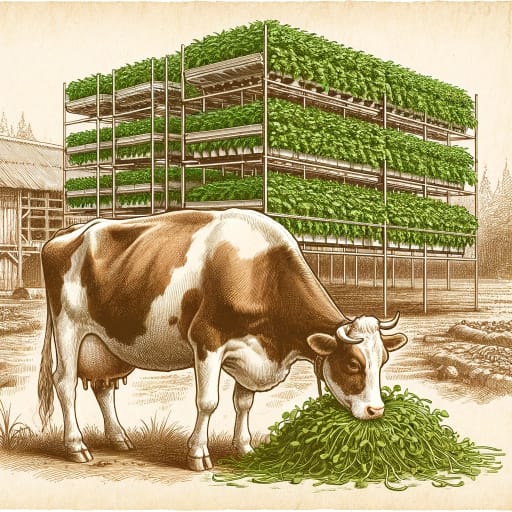
What is the current size of your growing area?
Our operation is remarkable in its land efficiency, utilizing less than 1 square meter per animal in our feeding program. We are in the process of constructing a state-of-the-art facility with the initial capacity to nourish approximately 500 cows, with plans to scale up to accommodate over 20,000 cows.
This facility’s yield potential is extraordinary; it is poised to produce an amount of feed that would otherwise require an agricultural footprint equivalent to the entire city of Dubai. To put this into perspective, the land area required for our feed production is less than one-thousandth of the area needed for conventional alfalfa farming, which currently dominates the beef and dairy industry’s feed consumption.
The secret to our success lies in the innovative application of vertical farming techniques, which allow us to maximize yield while minimizing land use, revolutionizing the agricultural paradigm, and setting new benchmarks for sustainability in the industry.
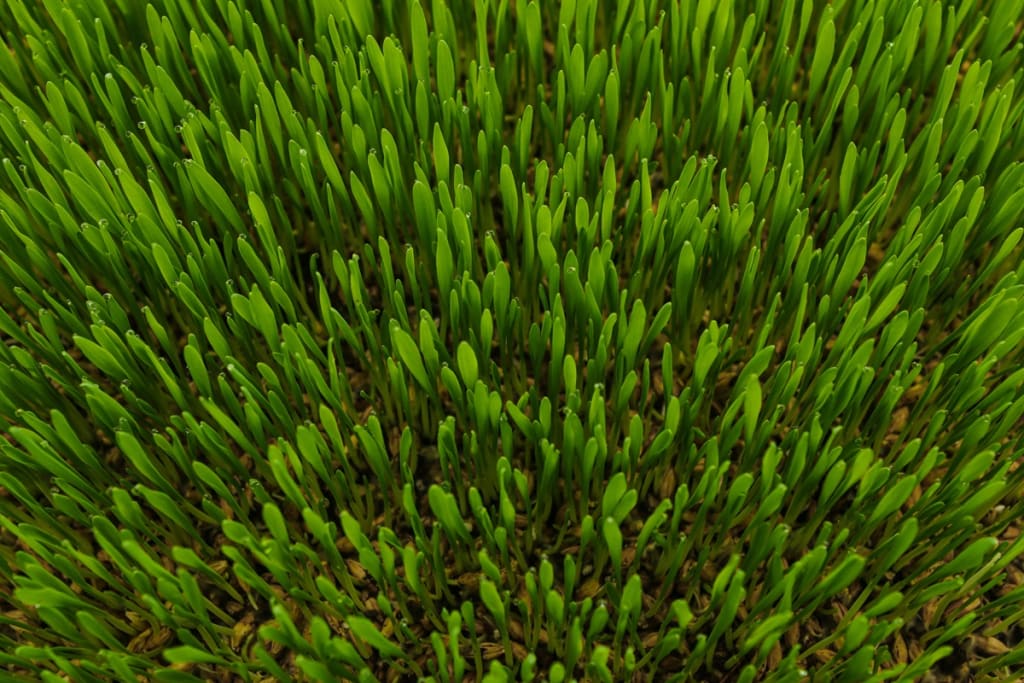
Do you use CO2 in your operation today — If so, how much and what do you pay for it? What are your thoughts in CO2 usage in indoor farms?
In our facilities, the application of CO2 is rendered unnecessary due to the rapid growth cycle of our crops, which is a mere six days. Moreover, the intrinsic energy within our grains eliminates the need for artificial lighting to facilitate sprouting. Our method is not only energy-efficient but also significantly eco-friendlier; it generates less than half the CO2 emissions compared to traditional feed crop agriculture. Furthermore, a notable environmental benefit of our fodder is its ability to reduce methane emissions from cows by 40%. This represents a substantial stride towards more sustainable livestock farming, mitigating the ecological footprint of cattle rearing.
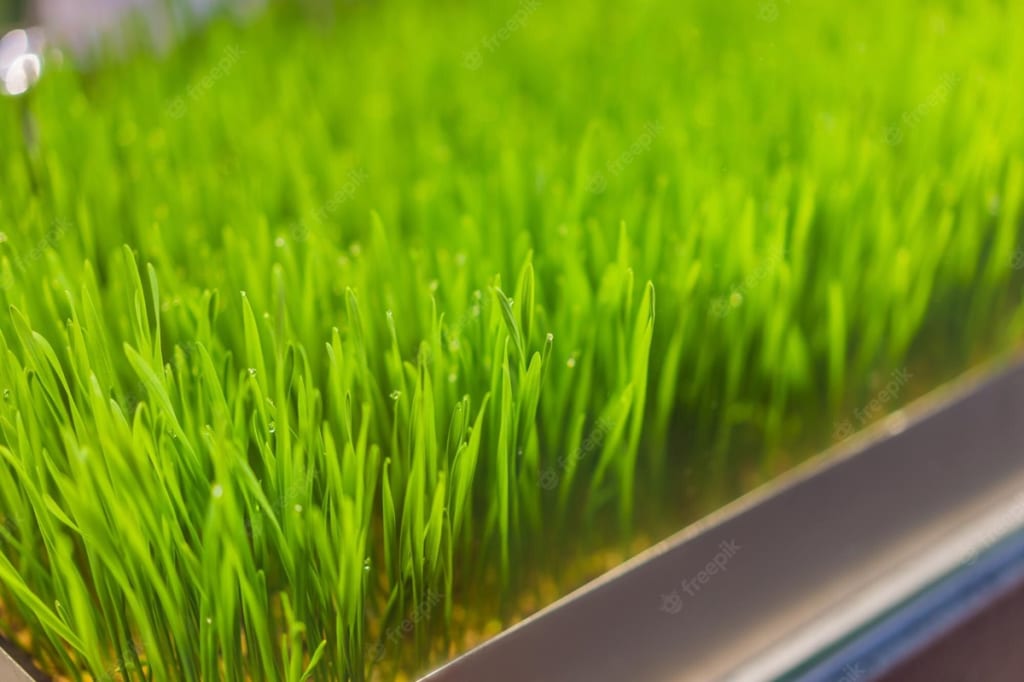
Energy is a big topic in indoor farming right now. How much do you pay for electricity (KWh)? Is it mainly from the grid or renewables?
Energy consumption is a significant challenge in the realm of indoor farming, or controlled environment agriculture. Our operations, however, are designed to circumvent the need for energy-intensive growing lamps. While we have successfully eliminated this requirement, the bulk of our energy usage is attributed to HVAC systems and dehydration facilities, which are essential for maintaining optimal growing conditions.
To mitigate the environmental impact of our energy use, we are actively integrating renewable energy sources to the greatest extent possible, thereby reducing our carbon footprint.
Additionally, we are in the process of evaluating a range of innovative cooling technologies that promise to be far less energy-intensive compared to traditional cooling methods. These advancements are crucial as we strive to enhance the sustainability of our agricultural practices.
About Graze-it
At Graze-it, we are dedicated to revolutionizing the way we grow and produce the “food of our food”. Our innovative platform allows us to cultivate the healthiest nutrient crops year-round in a controlled environment.
Our goal is to provide fresh, pesticide-free, and locally-grown produce to our clients, while also reducing the environmental impact. We continuously minimize the use of resources such as water, land, and even energy (use of renewables).
Graze-it is constantly striving to improve and optimize our processes for a sustainable supply to reduce food security risks.

